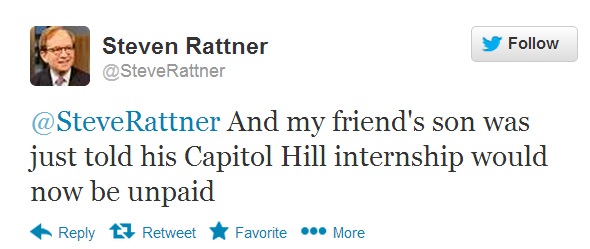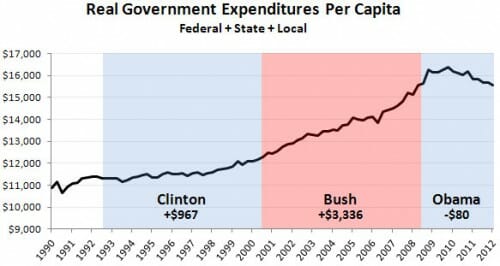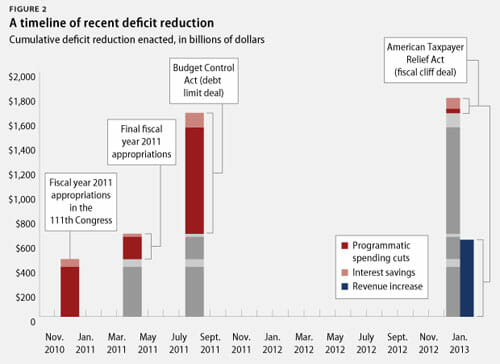Of late I have been seeing a lot of examples of people trying to claim that complex, even chaotic multi-variable systems are in fact driven by a single variable. Whether it be CO2 in climate or government spending in Keynesian views of the economy, this over-simplification seems to be a hubris that is increasingly popular.
The worst example I believe I have ever seen of this was in the editorial page today in the Arizona Republic. Titled Arizona vs. Massachusetts, this article purports to blame everything from Arizona's higher number of drunk driving accidents to its higher number of rapes on ... the fact that Arizona has lower taxes. I kid you not:
In the absence of discernible benefits, higher taxes are indeed a negative. We would all like to keep more of what we earn. That is, if there are not other negative consequences. So, it is reasonable to ask: What do Massachusetts citizens get for these increased public expenditures? A wide range of measures from widely disparate sources provide insight into the hidden costs of a single-minded obsession with lower taxes at all costs.
The results of such an investigation are revealing: Overall, Massachusetts residents earn significantly higher salaries and are less likely to be unemployed than those who live in Arizona. Their homes are less likely to be foreclosed on. Their residents are healthier and are better educated, have a lower risk of being murdered, getting killed in a car accident or getting shot by a firearm than are Arizonans. Perhaps these factors explain the lower suicide rate in Massachusetts than in Arizona as well as the longer life spans.
None of this supposed causation is based on the smallest scrap of evidence, other than the spurious correlation that Arizona has lower taxes at the same time it has more of the bad things the authors don't like. The authors do not even attempt to explain why, out of the thousands of variables that might have an impact on these disparities, that taxation levels are the key driver, or are even relevant.
Perhaps most importantly, the authors somehow fail to even mention the word demographics. Now, readers know that I am not very happy with Arizona Conservatives that lament the loss here of the Anglo-Saxon mono-culture. I think immigration is healthy, and find some of the unique cultures in the state, such as on the large tribal reservations, to make the state more interesting.
However, it is undeniable that these demographic differences create wildly different cultures between Arizona and Massachusetts, and that these differences have an enormous impact on the outcomes the authors describe. For example, given the large number of new immigrants in this state, many of whom come here poor and unable to speak English, one would expect our state to lag in economic averages and education outcomes when compared to a state populated by daughters of the revolution and the kids of college professors (see immigration data at end of post). This is made worse by the fact that idiotic US immigration law forces many of these immigrants underground, as it is far harder to earn a good income, get an education, or have access to health care when one does not have legal status. (This is indeed one area AZ is demonstrably worse than MA, with our Joe-Arpaio-type fixation on harassing illegal immigrants).
By the way, it turns out Arizona actually does pretty well with Hispanic students vs. Massachusetts -- our high school graduation rate for Hispanics is actually 10 points higher than in MA (our graduation rate for blacks is higher too). But since both numbers are so far below white students, the heavy mix of Hispanic students brings down Arizona's total average vs. MA. If you don't understand this issue of how one state can do better than another on many demographic categories but still do worse on average because of a more difficult demographic mix, then you shouldn't be writing on this topic.
Further, the large swaths of this state that are part of various Indian nations complicate the picture. AZ has by far the largest area under the management of tribal nations in the country -- in fact, almost half the tribal land in the country is in this one state. These tribal areas typically add a lot of poverty, poor education outcomes, and health issues to the Arizona numbers. Further, they are plagued with a number of tragic social problems, including alcoholism (with resulting high levels of traffic fatalities) and suicide. But its unclear how much these are a result of Arizona state policy. These tribal governments are their own nations with their own laws and social welfare systems, and in general fall under the purview of Federal rather than state authority. The very real issues faced by their populations have a lot of historical causes that have exactly nothing to do with current AZ state tax policy.
The article engages in a popular sort of pseudo-science. It drops in a lot of numbers, leaving the impression that the authors have done careful research. In fact, I count over 50 numbers in the short piece. The point is to dazzle the typical cognitively-challenged reader into thinking the piece is very scientific, so that its conclusions must be accepted. But when one shakes off the awe over the statistical density, one realizes that not one of the numbers are relevant to their hypothesis: that the way Arizona runs its government is the driver of these outcome differences.
It's really not even worth going through the rest of this article in detail. You know the authors are not even trying to be fair when they introduce things like foreclosure rates, which have about zero correlation with taxes or red/blue state models. I lament all the negative statistics the authors cite, but it is simply insane to somehow equate these differences with the size and intrusiveness of the state. Certainly I aspire to more intelligent government out of my state, which at times is plagued by yahoos focusing on silly social conservative bugaboos. I am open to learning from the laboratory of 50 states we have, and hope, for example, that Arizona will start addressing its incarceration problem by decriminalizing drugs as has begun in other states.
The authors did convince me of one thing -- our state university system cannot be very good if it hires professors with this sort of analytical sloppiness. Which is why I am glad I sent my son to college in Massachusetts.
PS- If the authors really wanted an apples to apples comparison that at least tried to find states somewhat more demographically similar to Arizona, they could have tried comparing AZ to California and Texas. I would love for them to explain how well the blue state tax heavy model is working in CA. After all, they tax even more than MA, so things must be even better there, right? I do think that other states like Texas are better at implementing aspects of the red-state model and do better with education for example. You won't get any argument from me that the public schools here are not great (though I work with several Charter schools which are fabulous). For some reason, people in AZ, including upper middle class white families, are less passionate on average about education than folks in other states I have lived. I am not sure why, but this cultural element is not necessarily fixable by higher taxes.
Update- MA supporters will argue, correctly, that they get a lot of immigration as well. In fact, numerically, they get about the same number of immigrants as AZ. But the nature of this immigration is totally different. MA gets legal immigrants who are highly educated and who come over on corporate or university-sponsored visa programs. Arizona gets a large number of illegal immigrants who get across the border with a suitcase and no English skills. The per-person median household income for MA immigrants in 2010 was $16,682 (source). The per-person median household income for AZ immigrants was $9,716. 35.3% of AZ immigrants did not finish high school, while only 15.4% of MA immigrants have less than a high school degree. 48% of AZ immigrants are estimated to be illegal, while only 19% of those in MA are illegal. 11% of Arizonans self-report that they speak English not at all, vs. just 6.7% for MA (source).







